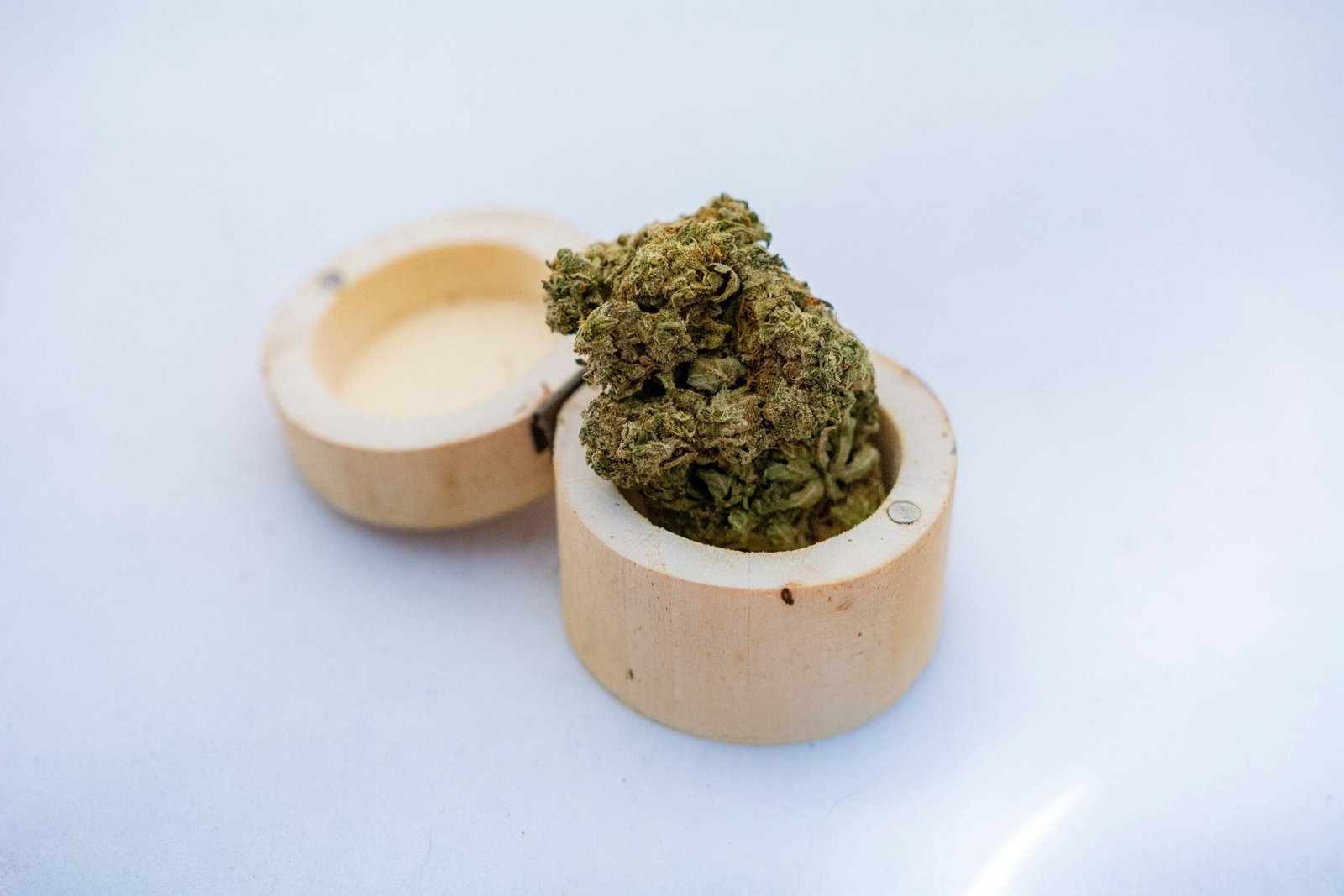
Introduction to Hair Fall
Hair fall is a common concern affecting individuals across various age groups, with an estimated 50% of people experiencing noticeable hair thinning by the age of 50. The prevalence of hair loss can be attributed to a variety of factors, including genetics, hormonal changes, nutritional deficiencies, environmental influences, and stress. These causes can lead to conditions such as androgenetic alopecia, telogen effluvium, and alopecia areata, each differing in their manifestation and underlying mechanisms.
The emotional and psychological impact of hair fall is profound. Individuals facing significant hair loss may experience low self-esteem, anxiety, and even depression. Hair often symbolizes youth and beauty in many cultures, making its loss not only a physical concern but also a deeply personal one. Addressing hair fall can therefore play a crucial role in restoring not only physical appearance but also overall mental well-being.
Given the emotional weight and prevalence of hair fall, it is important to consider effective solutions. While many individuals might turn to commercial products and chemical treatments, there is a growing interest in natural remedies. These alternatives often offer a holistic approach to hair health, focusing on nourishing the scalp and hair follicles without the side effects associated with synthetic products. Natural remedies leverage ingredients derived from plants, herbs, and essential oils, which have been used for centuries to promote hair growth and improve overall hair vitality.
As we explore this topic further, it is essential to understand the potential benefits of these natural remedies in preventing hair fall. These solutions may not only support hair regrowth but also contribute to improved scalp health and overall well-being, making them worthy of consideration for individuals seeking alternatives to traditional treatments.
Understanding the Causes of Hair Fall
Hair fall can be a distressing condition, often resulting from a complex interplay of various factors. Understanding these causes is crucial in addressing the issue effectively. One of the primary contributors to hair loss is genetics. Individuals with a family history of hair thinning are likely to experience similar issues due to hereditary patterns, such as androgenetic alopecia. This condition relates to hormonal changes and can significantly affect hair density over time.
Hormonal fluctuations are another significant factor influencing hair health. Events like puberty, pregnancy, and menopause can lead to imbalances in hormones such as estrogen and testosterone, which in turn can trigger hair loss. Additionally, medical conditions such as polycystic ovary syndrome (PCOS) and thyroid disorders can disrupt normal hormone levels, leading to thinning and shedding of hair.
Nutritional deficiencies also play a critical role in hair fall. A diet lacking adequate vitamins and minerals, particularly iron, vitamin D, and biotin, can hinder hair growth. Insufficient protein intake may lead to weakened hair strands, making them more susceptible to breakage. Stress, whether physical or emotional, can exacerbate this issue as it triggers a condition known as telogen effluvium, where hair prematurely shifts into the shedding phase.
Environmental factors, including pollution and harsh weather conditions, can adversely impact hair health by causing damage and increasing the likelihood of hair loss. Chemical treatments and excessive heat exposure from styling tools further compromise hair integrity. By recognizing these causes, individuals can take proactive steps to mitigate hair loss and promote healthier hair growth.
Natural Remedy 1: Amla (Indian Gooseberry)
Amla, also known as Indian Gooseberry, is revered in traditional medicine for its numerous health benefits, particularly its effectiveness in preventing hair fall. One of the key reasons for Amla’s popularity in hair care is its high Vitamin C content, which is essential for the production of collagen, a protein that plays a critical role in maintaining the strength and integrity of hair. Additionally, the antioxidants found in Amla combat oxidative stress, which can lead to hair thinning and loss.
The use of Amla for hair health dates back centuries, and it is believed to nourish the scalp, improve blood circulation, and promote hair growth. Regular application of Amla can not only help in minimizing hair fall but also enhance overall scalp health, making your hair thicker and shinier. Its natural properties may also help in combating dandruff and maintaining the pH balance of the scalp.
Amla can be incorporated into your hair care routine in various forms. For example, Amla oil can be prepared by soaking dried Amla fruits in carrier oils such as coconut or sesame oil. This mixture should be heated gently and allowed to cool before massaging it onto the scalp. Leave the oil on for at least one hour or overnight for optimal results. Alternatively, Amla powder can be mixed with yogurt or water to create a paste that can be applied directly to the scalp. Leave it on for about 30 minutes before rinsing with a mild shampoo.
Incorporating Amla into your diet can also be beneficial. Consuming Amla juice or incorporating it into meals can help deliver its nutrients from the inside out. Overall, Amla serves as an effective and natural remedy to combat hair fall and foster healthy hair growth.
Aloe Vera: A Soothing Solution for Hair Care
Aloe vera is widely recognized for its healing abilities and has been used for centuries as a natural remedy for various ailments. When it comes to hair care, this versatile plant is particularly beneficial due to its soothing properties and nutrient-rich composition. Aloe vera contains vitamins, minerals, and amino acids that are essential for maintaining healthy hair and a nourished scalp. Its moisture-rich gel helps to hydrate the hair and scalp, making it an ideal treatment for individuals experiencing hair fall due to dryness or irritation.
One of the primary benefits of aloe vera is its ability to combat dandruff. Dandruff is often caused by a dry or irritated scalp, which can lead to increased hair fall. By applying aloe vera gel directly to the scalp, one can effectively reduce flakiness and inflammation. The antibacterial properties of aloe vera also help to eliminate any fungi or bacteria that may cause scalp issues, promoting a healthier environment for hair growth.
Incorporating aloe vera into your hair care routine can be simple and effective. To benefit from its properties, one can massage fresh aloe vera gel onto the scalp and hair, allowing it to penetrate for at least 30 minutes before rinsing it off with a mild shampoo. For those seeking a more permanent solution, mixing aloe vera with coconut oil or honey can create a nourishing hair mask. This can be applied weekly to enhance moisture and elasticity, reducing the risk of hair fall.
Overall, the regular use of aloe vera not only nurtures the scalp but also promotes hair growth, providing a holistic approach to tackling hair fall. Its natural components serve to strengthen hair follicles and enhance overall hair health, making it a valuable addition to any hair care routine.
Coconut Oil as a Natural Remedy for Hair Fall
Coconut oil has gained immense popularity in recent years as a versatile natural remedy for various hair concerns, including hair fall. Its unique composition, rich in fatty acids such as lauric acid, enables it to penetrate the hair shaft effectively, providing deep moisturization. By maintaining optimal moisture levels in the hair, coconut oil can help prevent dryness and brittleness, two leading contributors to hair fall.
In addition to its moisturizing properties, coconut oil offers antimicrobial benefits that can promote a healthier scalp environment. Scalp conditions, such as dandruff and fungal infections, can compromise hair health. The application of coconut oil can help to combat these issues due to its natural antifungal and antibacterial properties. This ensures that the scalp remains free from irritants that might induce hair fall.
To harness the benefits of coconut oil, consider incorporating it into your hair care routine through scalp massages. Gently warming a small amount of coconut oil and massaging it directly onto the scalp can enhance blood circulation. This stimulation encourages hair growth and strengthens hair follicles. Such massages can be performed once or twice a week, allowing the oil to nourish the scalp adequately.
Moreover, using coconut oil as a pre-wash treatment can significantly improve hair strength and resilience. Apply the oil generously throughout your hair, focusing on the ends, and leave it in for approximately 30 minutes before washing. This treatment nourishes the hair from within, preventing excessive hair fall during washing and styling processes.
Incorporating coconut oil into your hair care regimen provides an effective natural solution to diminish hair fall and promotes healthier, stronger hair. Its moisturizing and antimicrobial properties make it an excellent choice for anyone seeking to maintain hair vitality.
Natural Remedy 4: Onion Juice
Onion juice has gained significant recognition in the realm of natural remedies for hair fall prevention, primarily due to its rich sulfur content. Sulfur is a vital mineral that plays a crucial role in the production of collagen, a protein essential for maintaining the strength and elasticity of hair follicles. By promoting collagen synthesis, onion juice can help to strengthen hair strands, potentially reducing the risk of hair fall.
To harness the benefits of onion juice effectively, one can follow a straightforward extraction process. Start by selecting fresh, firm onions—red or white onions will suffice, but red onions are often preferred for their higher antioxidant content. Peel and chop the onions into smaller pieces to maximize the juice yield. Place the chopped onions in a blender and blend them until you achieve a smooth paste. Next, use a fine mesh sieve or cheesecloth to strain the mixture; this will separate the juice from the fibrous pulp. The resulting liquid is your onion juice, ready for application.
When applying onion juice to the scalp, ensure that the hair is clean and dry. Using a cotton ball or your fingertips, gently massage the juice onto your scalp, focusing on areas that may be experiencing thinning or hair fall. Allow the juice to sit for at least 30 minutes before rinsing it out with a mild shampoo. For optimum results, it is advisable to incorporate this treatment into your routine 2 to 3 times per week. Many individuals report noticeable improvements in hair thickness and overall health after regular application, making onion juice a compelling natural remedy for those looking to combat hair fall.
Fenugreek Seeds: A Natural Remedy for Hair Health
Fenugreek seeds, scientifically known as Trigonella foenum-graecum, have long been recognized for their rich nutrient profile, which includes proteins, vitamins A, C, and K, along with minerals such as iron, calcium, and potassium. These seeds boast a plethora of health benefits, particularly in the realm of hair care. Traditionally utilized in various cultures, fenugreek has been regarded as a potent natural remedy to strengthen hair and reduce hair fall.
To harness the benefits of fenugreek for promoting healthy hair, a simple paste can be prepared at home. Start by soaking two tablespoons of fenugreek seeds in water overnight. This soaking process activates their beneficial properties and enhances their ability to nourish hair. The next day, drain the water and transfer the seeds to a blender. Blend the seeds into a thick paste, adding a few drops of water if necessary to achieve the desired consistency. This paste can be enriched further by incorporating natural ingredients such as yogurt or coconut oil, which are also beneficial for hair health.
Once the paste is ready, apply it generously to the scalp and hair, ensuring even coverage from roots to tips. Allow the mixture to sit for about 30–45 minutes before rinsing it out with a gentle shampoo. Regular application of fenugreek paste can be beneficial in several ways; it can help reduce dandruff, promote hair shine, and strengthen hair follicles, ultimately making hair less prone to fall. Additionally, the anti-inflammatory properties of fenugreek may soothe the scalp and promote blood circulation, further enhancing hair growth.
In conclusion, incorporating fenugreek seeds into your hair care routine can provide a natural, effective solution to combat hair fall and improve overall hair health.
Incorporating Natural Remedies into Your Routine
Integrating natural remedies into your hair care regimen requires a systematic approach for optimal results. To effectively prevent hair fall, consistency is essential. Begin by establishing a dedicated schedule for applying these remedies, whether it’s daily or weekly. For example, using a nurturing oil like coconut or jojoba oil twice a week can significantly enhance your hair’s health. Allocating specific days for treatments ensures that you stay committed and track your progress effectively.
Moreover, complementary practices contribute to the effectiveness of these natural remedies. Maintaining a balanced diet rich in vitamins and minerals can bolster hair strength. Incorporate foods high in omega-3 fatty acids, such as salmon and walnuts, which are known for promoting scalp health, as well as leafy greens that provide iron. Hydration also plays a critical role; drinking plenty of water ensures that your body is adequately hydrated, which directly impacts hair growth and overall health.
Monitoring your progress is equally important when incorporating natural remedies. Keep a journal to document your experiences, noting any changes in hair fall, texture, and overall health. This practice not only helps in recognizing patterns but also allows you to adjust your routine as needed. If you notice specific remedies yielding better results, consider prioritizing those in your regimen. Listening to your body’s response is crucial for identifying what works best for you.
Remember, patience is key. Natural remedies do not yield immediate results, and it may take several weeks to observe significant improvements. By consistently implementing these practices, along with natural remedies, you can create a comprehensive approach to managing and preventing hair fall.
Lifestyle Changes to Support Hair Health
Maintaining healthy hair requires a multifaceted approach, incorporating various lifestyle changes that can support overall hair health. A balanced diet is paramount, as it provides essential nutrients necessary for hair growth and maintenance. Incorporating foods rich in vitamins A, C, D, E, zinc, iron, and omega-3 fatty acids provides the building blocks for strong and resilient hair. Foods such as leafy greens, nuts, seeds, fish, and whole grains should feature prominently in one’s diet to ensure optimal hair nourishment.
Equally important is the management of stress, which has been linked to hair fall. Chronic stress can disrupt the hair growth cycle and lead to conditions such as Telogen Effluvium, where hair prematurely enters the resting phase. Techniques such as meditation, yoga, and deep-breathing exercises can be effective in mitigating the effects of stress. Allocating time for relaxation, pursuing hobbies, and ensuring a good work-life balance can also contribute significantly to overall well-being, subsequently improving hair health.
Moreover, it is vital to avoid harsh chemicals found in many hair care products that can strip natural oils and weaken hair strands. Instead, opting for natural or sulfate-free shampoos and conditioners helps maintain hair integrity. Limiting the use of heat styling tools can also prevent damage and breakage, allowing hair to flourish naturally. Regular hair trims can reduce split ends, promoting healthier hair growth.
Finally, incorporating regular exercise into one’s routine improves circulation, which enhances blood flow to the scalp, fostering an environment conducive to hair growth. Engaging in physical activity also helps regulate hormones, further reducing the likelihood of stress-related hair loss. By adopting these holistic lifestyle changes, individuals can create a supportive framework for healthy hair, potentially minimizing hair fall over time.
Conclusion
In light of the various natural remedies discussed, it is evident that adopting these methods can substantially contribute to preventing hair fall. The integration of natural ingredients, such as essential oils, herbal extracts, and nutrient-rich diets, not only promotes healthier hair growth but also minimizes the potential side effects often associated with synthetic products. Each remedy offers its own unique set of benefits, from strengthening hair follicles to improving scalp health, making them a viable option for those seeking to enhance their hair care regimen.
Furthermore, incorporating practices such as regular scalp massages and using natural shampoos adds an extra layer of nourishment that can be beneficial for hair vitality. By choosing to embrace these natural alternatives, individuals take proactive steps toward achieving thicker, healthier hair, while also fostering a holistic approach to personal care. This shift not only enhances physical appearance but can also boost confidence and self-esteem.
However, it is important to remember that while natural remedies can play a significant role in hair fall prevention, persistent issues may require a deeper understanding of underlying causes. Consulting with health professionals or dermatologists is crucial for individuals experiencing ongoing hair loss, as they can provide tailored advice and treatment options. Thus, merging natural care practices with expert guidance can lead to more effective outcomes. As we consider implementing these remedies into our routines, it is essential to approach hair care with patience and diligence, ensuring that our efforts yield positive results over time.
RELATED POSTS
View all


